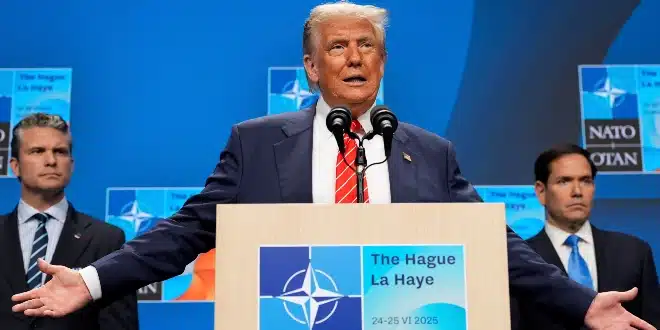European Union leaders are convening in Brussels on Thursday for a high-stakes summit focused on sanctions against Russia, managing transatlantic trade tensions, and addressing escalating instability in the Middle East. The meeting gathers all 27 heads of state and government from the EU’s member countries and comes directly after a NATO summit where increased defense commitments were agreed upon.
Post-NATO Priorities and Ukraine’s Reduced NATO Profile
Many of the EU leaders will be arriving from a short but pivotal NATO gathering where they pledged greater military spending. Although NATO members sought to present a united front alongside US President Donald Trump, several underlying tensions remained, particularly concerning defense spending levels and trade policies.
Ukrainian President Volodymyr Zelenskyy is scheduled to participate in the EU summit via videolink. His appearance follows a meeting with Trump, amid growing concerns that Ukraine’s standing within NATO discussions has been downgraded. Despite this shift in emphasis from NATO, Russia’s ongoing war in Ukraine remains a top priority for the European Union.
At the summit, leaders will weigh the proposed 18th package of sanctions against Russia, including deliberations over whether to retain the price cap on Russian oil exports. This particular measure has sparked debate among member states, with some expressing concerns over the potential for energy price hikes, especially as winter approaches.
Trade Tensions with the United States and Internal EU Challenges
The summit also takes place against a backdrop of growing strain in EU-US trade relations. President Trump has again threatened to impose tariffs on European goods, singling out Spain for what he characterized as insufficient defense spending. This has reignited anxiety in Brussels over Washington’s broader trade agenda, which the EU sees as a potential trigger for renewed economic conflict.
French President Emmanuel Macron has voiced opposition to the prospect of US-imposed tariffs and criticized the United States’ approach to trade with its European allies. The EU, which manages trade policy collectively through the European Commission, remains wary of further economic friction that could destabilize markets or weaken intra-alliance unity.
Within the EU itself, there are signs of internal friction. Differences persist over how the bloc should respond to Israeli actions in Gaza, with no common position yet reached. In addition, European Commission President Ursula von der Leyen is facing criticism from left-leaning parties for prioritizing defense over the EU’s previously strong leadership on climate issues.


